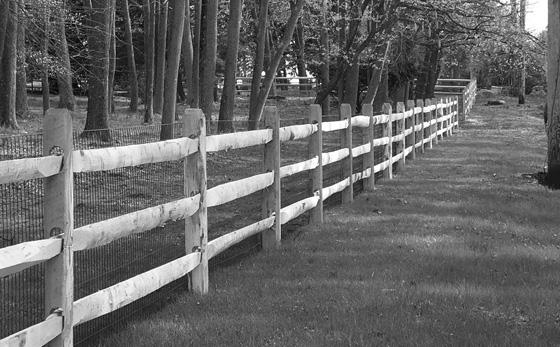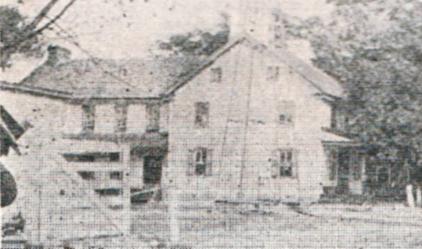
2 minute read
The Gap Gang
Submitted by Leona Baker of the HistoricalSocietyofSalisburyTownship. Photo and select details were provided by Wayne Morris of Coatesville in the Jan. 1, 1913, issue oftheCressetMagazine.

Advertisement
One hundred and fifty years ago, much of Salisbury Township was still a forested frontier. However, there were just enough little villages and farms to encourage horse thievery and other crimes.

Around 1851, there emerged along the boundary of Chester and Lancaster counties a group of thieves, counterfeiters and bounty hunters known as the “Gap Gang.” So successful were the gang members’ exploits, no one could ever actually prove that they were the perpetrators of crimes.
The leader appears to have been William Blank, whose high social standing may have protected him from suspicion. It was never proven that he had any connections with the gang, although circumstantial evidence did get him convicted of robbery several times.

The gang specialized in two activities - bounty hunting and stealing clover seed, though horses were also considered fair game. There was no quibbling over whether a person of color they captured was a runaway slave or a freeborn Northerner; any black person they could grab meant a profitable night. The Gap Gang was so successful that only once was it proven the gang had engaged in bounty hunting.
Today, clover is grown as a cover crop, but when it was introduced 175 years ago, clover seed was extremely expensive, up to $25 a bushel (60 pounds), which is equal to more than $100 in today’s market. By stealing 10 or 15 bushels in a night, the thieves could make a profit far greater than by stealing horses.

Success was almost always on the side of the Gap Gang, for the goods were sold through agents in other states. This made them very hard to trace.
The gang gained enough notoriety to be blamed for just about any suspicious disappearance of goods from the neighborhood or any crime. In 1854, a man stopped at the Mt. Vernon Hotel with saddlebags filled with considerable cash. He went to bed late the night he arrived and was never heard from again. No one was ever prosecuted, but suspicions were strong that the Gap Gang was involved.
Fate finally brought about the gang’s downfall. One day a constable and his agent discovered a cave full of articles recently stolen from local landowners. Enough evidence was found to implicate the group’s alleged leader, Mr. Blank, who had moved to the South by that time, establishing a reputation as an upright citizen in a Maryland town. Hearing that the constable was coming South to arrest him, the esteemed Mr. Blank began telling his new friends that “men are coming to steal your (slaves) and take
“This is our first year being involved with (the Civics Bee),” noted Marguerite DeGrassa, CCCBI director of marketing and communications, adding that the regional Civics Bee is part of the U.S. Chamber of Commerce Foundation’s National Civics Bee competition.
In the first round of the contest, local sixth-, seventh- and eighthgrade students will be asked to submit an essay. In the essay, students must identify a problem, challenge or opportunity in local communities and explain what can be done to improve it based on civic virtues and founding principles. Civic virtues include moderation, respect and integrity, and the founding principles - core ideas of the Declaration of Independence and the Constitution - include concepts such as inalienable rights.
In the 500-word essay, students may write about issues in their own








